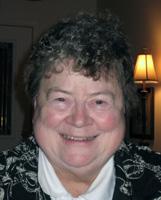Today is Mother’s Day and I would like to tell you about an extraordinary mother who also is an amazing mental health advocate. Her name is Trudy Harsh and she lives in Fairfax, Virginia.
Trudy’s daughter, Laura, developed a brain tumor when she was eight years old. Doctors at Georgetown Hospital in Washington D.C. were able to remove it, but they warned Trudy that Laura would only live for six more years at best. 




Thank you for sharing Trudy and Laura's story. There is emergent research involving TBI's, treatment with hyperbaric chamber and fish oils. Below are just a few articles. Acupuncture also has the possiblity of helping individuals with TBI's.
http://www.menshealth.com/men/health/other-dise…
http://www.mnwelldir.org/docs/cardio/cardio17.htm
http://www.headinjurylaw.com/subcat_recovery_nu…
http://www.brainandspinalcord.org/blog/2008/08/…
Thank you for sharing Trudy and Laura's story. There is emergent research involving TBI's, treatment with hyperbaric chamber and fish oils. Below are just a few articles. Acupuncture also has the possiblity of helping individuals with TBI's.
http://www.menshealth.com/men/health/other-dise…
http://www.mnwelldir.org/docs/cardio/cardio17.htm
http://www.headinjurylaw.com/subcat_recovery_nu…
http://www.brainandspinalcord.org/blog/2008/08/…